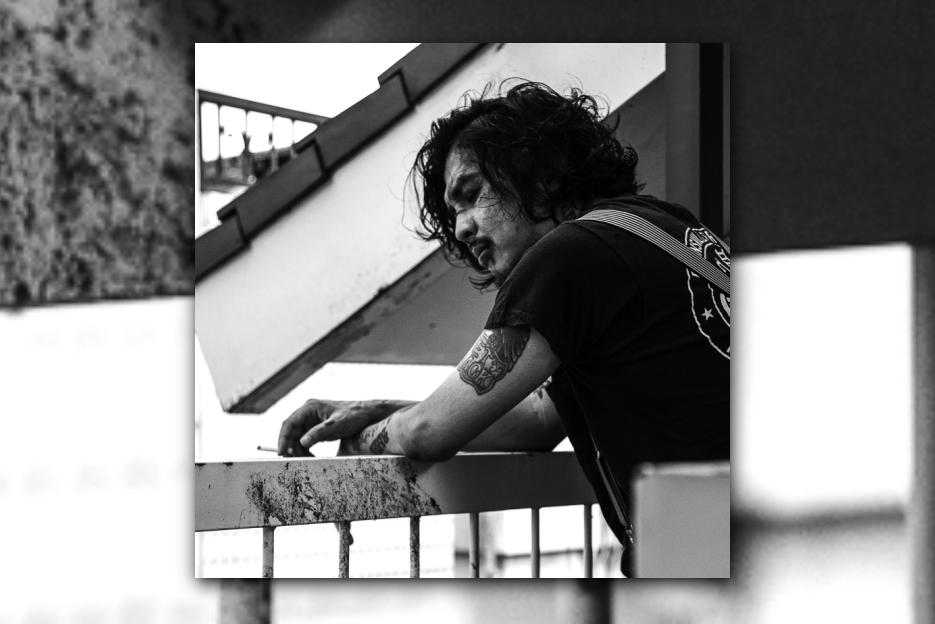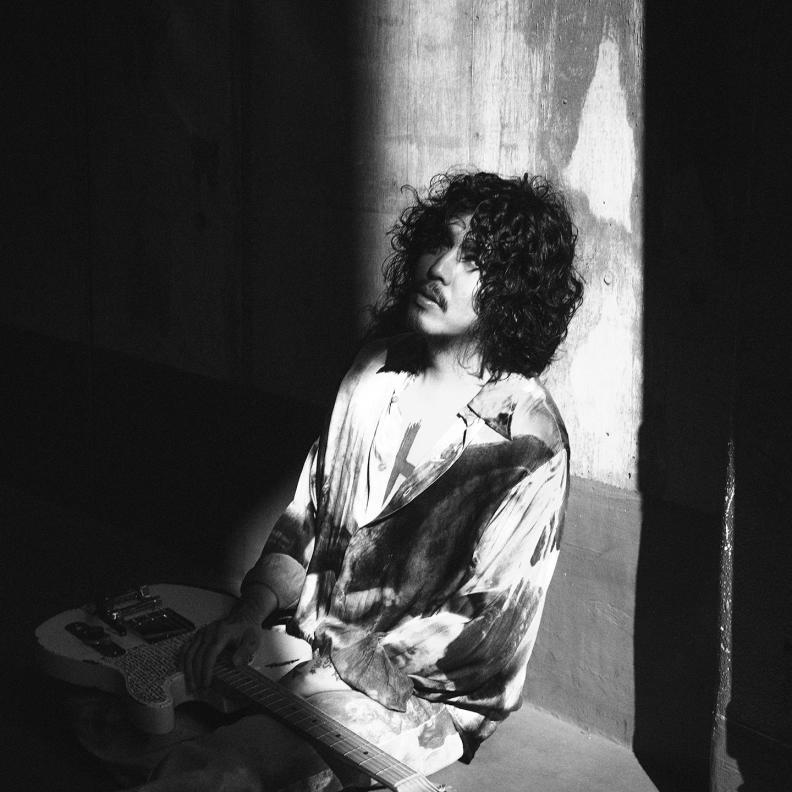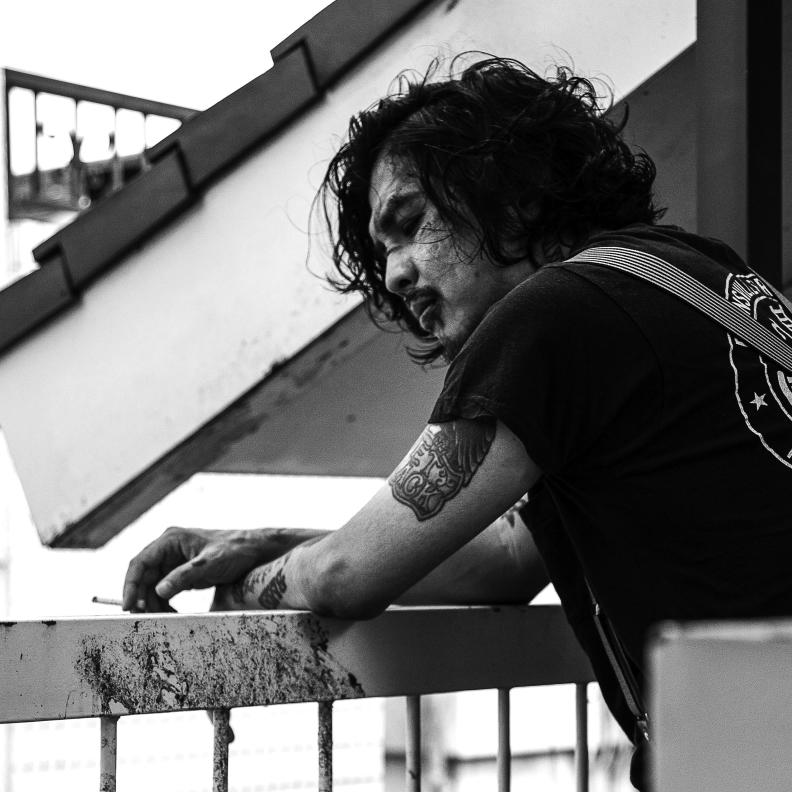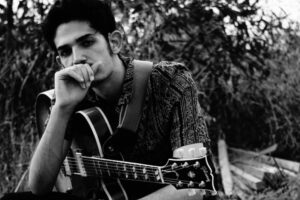
Renowned as one of Japan's most exceptional guitarists and a luminary of the modern rock scene, DURAN is set to captivate audiences once again with his fourth blues album, "30 Scratchy Backroad Blues."
In this exclusive interview, we delve into DURAN’s deep-rooted passion for blues music, his innovative approach to revitalizing the genre, and the exciting collaborations featured on his latest album. Join us as we explore the inspiration behind DURAN’s music, his artistic journey, and his unwavering commitment to preserving the timeless spirit of the blues.
Hi DURAN, thank you for being with us today! Your new album, “30 Scratchy Backroad Blues,” has just been released. Can you tell us more about the inspiration behind this project and what listeners can expect from it?
There are very few music recordings in today’s chart-topping music that have been recorded with real humans pouring their souls into it. With composition and recording being so editable, and with AI available, technology has advanced so much that everything has become too easy, in a way. That’s why I think it’s important to go back to the roots. Even though I have no influence, I feel that if someone doesn’t make that kind of music, it would be sad and we would lose something. I think it’s important for musicians living today to remember how much the blues has contributed to the history of music and to make sure to leave that legacy behind. I hope that through this album, the true greatness of music can be conveyed.
How does your background growing up in Japan and the Philippines influence your approach to creating blues music?
There is almost no blues scene in Japan or the Philippines. That’s why my admiration and respect for the blues have grown steadily. I made this album with the hope of bringing a different perspective on the blues from a place far away from where it was born.
With your diverse musical background, including experiences in bands like ROOTLESS and Made in Asia, what led you to explore the blues genre for this album?
I originally liked blues, but in Japan, you have to do J-Pop to survive, so I was in a band like that. But I got tired of it and quit, haha. I started playing guitar because of my father’s influence and was into rock, but the more I learned about my favorite artists, the more I realized they were influenced by the blues, and that’s how I got into blues.
“30 Scratchy Backroad Blues” aims to rejuvenate traditional roots blues for the modern era. Could you share some insights into how you’ve modernized the blues sound while staying true to its roots?
I think I’m the only musician covering Charley Patton and releasing it in 2024 haha. At that point, I was already working on reviving roots blues for the modern era, but I thought a lot about recording equipment. I mostly recorded with one microphone, like in the 1920s, but of course, I used better microphones than those from that time. It might be good to record with all vintage equipment from that era, but I think that’s different from respect. I don’t think it’s a good thing to revive what legends left behind in the same equipment and environment as back then. I feel like it would be more of ruining what the legends left behind. It’s more interesting to see what happens when you record with today’s equipment and sensibility. It was challenging, but I really think a little update is good. Regarding the guitar, I’ve incorporated modern approaches that Delta blues guitarists of the past would never do, and the choice of effects pedals is exactly that. There were no such things back then. I was very careful about choosing the fuzz pedal. I deliberately used current new fuzz pedals, but somewhere, there’s a sense of incompleteness or using a dirty fuzz, which brings out the roughness and instability of that time.
Your album “30 Scratchy Backroad Blues” features collaborations with esteemed musicians like June Yamagishi and Ilana Katz Katz. Can you share more about how these collaborations came about and what each artist brought to the project?
June Yamagishi is a Japanese guitarist based in New Orleans. He is a legendary guitarist who ranked first in the New Orleans guitarist popularity poll. He’s truly amazing. When he came to Japan to perform, we had a session together on stage, and when I was working on my blues album this time, I asked him to participate as a featured artist. When it came to mixing, his guitar didn’t need anything. The sound of his guitar was directly in my head. He brought the true tone of someone who dedicates their life to blues without selling their soul to popular music. I think it’s a reminder of how the guitar shines in the blues genre. Ilana Katz Katz is someone I found by chance when I was looking for various blues recordings. When I first heard her blues, I was electrified. It resonated with me. So I sent her a DM directly, and she replied immediately. She’s truly a person with a wonderful soul. Whenever I was feeling down, she always encouraged me. Releasing a blues album, especially from Japan, in this era was very difficult and felt like a lonely battle, but thanks to her, I was able to release it without giving up. She left a wonderful soul, love, and sound on this album. She participated in the song “Too Late, You Waste” and it became a song with an atmosphere that no one can imitate.
Your music has been featured on radio programs and web news outlets around the world. How do you think your global experiences have shaped your perspective on music and creativity?
I never thought I’d only do music in Japan. That’s because I attended an international school in the Philippines from the age of 14 and had friends from various countries around me. Recently, I’ve been getting picked up by radio stations in various countries, so I’ve come to think that I’d like to go to any country, meet various people through music, and share the best time. And if you stay in one country for too long, the style of the music business or success stories in that country can become natural, and you tend to get into a mindset of having to do that. However, once you step out of the country, you realize that there are completely different values out there, so in that respect, going abroad has had a very positive impact.
Can you walk us through your songwriting process for this album? Do you draw inspiration from personal experiences, or do you take a more abstract approach?
Many of my songs are inspired by movies or impactful events, but rather than writing lyrics from my own perspective, I always write them from the perspective of characters, or, for example, from the perspective of the perpetrator in the case of an event. This is because Blues is also a storyteller. Of course, there are personal songs as well, but I write lyrics for them in a story format. I think “Through My Hands” is the most direct personal song.
Your album aims to reevaluate the contributions of blues to music history while showcasing your deep respect and love for the genre. Could you expand on how you hope this album will impact listeners and contribute to the ongoing legacy of blues music?
I want people to remember or discover the wonderful aspects of music that they may have forgotten, and through this album, I hope they can. In a world where technology has made everything convenient and easy, humanity is important, and it’s a good aspect of being human that should not be forgotten. It feels like society now demands perfection, even on social media, but I believe it’s okay to be yourself as you are, without editing. This album has various noises and the vocals are not pitch-corrected, and there’s no post-recording editing, so it’s not perfect. However, that’s exactly the beauty of music. I hope this album inspires new blues musicians and that they, in turn, pass it on to future generations. If no one carries it on, it will disappear. While making money and sales are important, I want to capture music in a broader sense and leave behind works that contribute to the greatness of music.
What role does the guitar play in your blues music, and how do you approach crafting the distinctive guitar sounds and solos that define your style?
When it comes to guitar, it’s all improvised. I try to keep whatever comes to mind during recording. We create songs while jamming with the band, so we end up recording while composing. I don’t meticulously craft a demo before recording. I leave guitar noise and all as is. Noise is the essence of the guitar, something unique to it. If you clean it up too much, the guitar loses its coolness.

You’re known for your powerful fuzz sound and wild guitar playing. How do you balance technical proficiency with emotional expression in your performances?
Technique is a tool for translating the emotional aspects of the moment into sound without any obstacles. So, I don’t approach it with a mindset of balance.
Your track “Real Eyes” was selected for power play on Sweden’s radio program The Beats. How does it feel to receive recognition for your music on a global scale, and how does it motivate you as an artist?
It’s a joy to be heard by many people. There hasn’t been any change for me, and I can still do what I want to do. But knowing that somewhere in the world there are people listening to my music, I want to continue making music without selling my soul, without compromising my beliefs.
Looking ahead, what are your aspirations for the future of your music career, and do you have any upcoming projects or collaborations that you’re excited about?
I was saved by music, so I want to contribute to music with what I can do, what only I can do. It’s not about business first, but about music = art, so I want to leave behind something meaningful as an artist. Also, as a rock and blues musician, I want to make people around the world feel once again the power it holds. I know that the power and impact of rock can move people.




